
Explore the top rated Oconomowoc drug rehabs with confidence. We've analyzed each of the 25 addiction treatment centers in Oconomowoc, WI for patient reviews, clinical credentials, transparency, and brand reputation to identify the best rehab programs.
Filter by inpatient, outpatient, detox, health insurance, specialty program and more to quickly find the best drug and alcohol rehab in Oconomowoc.Our Methodology
Rehab Score
Our Rehab Score is designed to make it easier for you to find the best treatment centers. We combine overall ratings with recent feedback to create a score that reflects a center's quality right now.
.
| Name / Address / Rating | Description | Treatments / Programs / Payment Options | Review / Contact | Images | |
|---|---|---|---|---|---|
Oconomowoc, WI | Formerly known as Cornerstone Counseling, LifeStance Health is an outpatient psychiatric counseling center in Oconomowoc, Wisconsin. This office is part of a larger nationwide network of LifeStance Health locations. Here, they offer psychotherapy services for adolescents and adults, including substance abuse treatments. They offer in person or tele | Treatments Programs Payment Options | Logan Pockl is friendly, very knowledgeable, & excellent at med management.
sondra schaper
3 months ago
LifeStance is great! Easy booking and my therapist is so helpful!
Tara Rogers
4 months ago
Kim Jaeger is an incredible therapist. I’m so thankful for her professionalism, empathy and support. Highly recommended!
Sarah S
4 months ago
| 
2 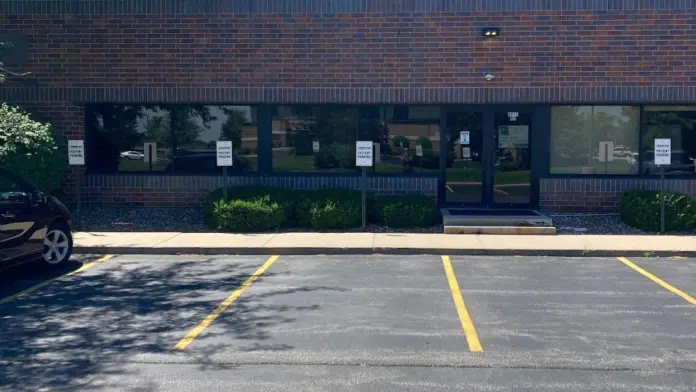
| |
Oconomowoc, WI | Genesee is an education center that supports children and families of children with developmental disabilities, autism, ADHD, intellectual disabilities, behavior problems, neurodevelopmental disorders, and mental health concerns. They have a residential and day program. Not Your Standard Classroom While they may share a room, the education that eac | Treatments Programs Payment Options | Excellent school and caring staff, my wife works here
Sean Scrivner
2 years ago
Great place for children with special needs and their families
Jorge Arreola-Munoz
7 years ago
Well im now 40 i was like 15 wen i was there i like to no why they took me from my home town Indiana all the why there im thinkin cause i hated school and was gettin in trouble. All the time i was on probation at the age 15 wow tell me that isnt a bad girl ....my teacher was julie howwel/ my woreshop teacher was gene gruber there where great teachers and betty lang was there umm.now im 40 married with 4 girls 1 boy we live in reyonosa mexico and i think back wow i dont get in trouble no amos.hope all the kids r doin great and hope there families stand by them threw this hard time there goin threw.i pray daily for every child in that place will one day return home to there moms and dads on great behavior i spent from the age 15 to i turned 18 man that was like a camp it has great people in that place i wish i could go back annd viait the school.love to all lids in need valerie diaz rivera.god has a plan kids stay strong let them help u there the best ....
valerie diaz-rivera
7 years ago
| ||
Oconomowoc, WI | ProHealth Medical Group Clinic is in Oconomowoc, Wisconsin. It’s a facility that provides treatment for drug and alcohol addiction. The staff members are trained to treat addictions to various substances, including prescription drugs and illegal drugs. In addition to treatment for substance abuse, clients have access to services for mental health | Treatments Programs Payment Options | Warning: the incoming review is long and full of high (almost sappy at times) praise in part because of how personal behavioral health treatment is and how deeply these folks have touched my life.
I've always liked ProHealth in general, but their Behavioral Health team in particular has been a huge part of my growth and mental health progress over the last year or two. The providers I am most familiar with are Amy Biwer, LPC and Dr. Veronica Makhija, and I would wholeheartedly recommend either of them to others.
Amy has changed my life, hands down. She's very action-oriented in the sense that she will encourage trying different exercises, which has been perfect for me. Others have used a one-size-fits-all approach where they just listened to me talk for an hour and handed me a sheet of cognitive distortions, but Amy actually managed to introduce me to new ideas and exercises--something hard to do with my history of therapists! I can't speak to the other counselors' methods, but if Amy is any indication of quality I suspect the others are good, too.
As I do take medications, I've also been working with Dr. Makhija, who clearly knows the science/pharmacology behind the treatments. She's another good listener and I've never felt like she was pressuring me or guiding me toward a certain drug for some kind of gain (unlike some previous docs who suspiciously focused on one option almost exclusively). Finding the right meds is never an exact process, but Dr. Makhija asks questions and takes notes to help me piece together the puzzle of what might work for my own brain and body.
I also can't speak highly enough of the admin staff, as I've never had a problem with scheduling appointments or making payments. I do have to specifically praise a gal named Maria, who I've gotten several times and just seems to be really efficient. Everyone's been good, but Maria gets an extra thumbs up from me. ;)
Okay, I know this is a long review and it sounds like a lot of butt kissing, but the bottom line is that I just really appreciate these folks. I highly recommend ProHealth for mental health/life help of any kind, even if you just need someone to talk to for a couple of months during a rough patch.
I've been to a lot of behavioral health places in both Wisconsin and Minnesota over the last 15+ years, and ProHealth has been far and away the best experience. I could not be more grateful or more emphatic in my recommendation. If you haven't found the right fit yet, I absolutely encourage you to give them a call and try things out. With any luck, they'll be just as helpful to you as they have been for me.
Brittany M.
7 years ago
| 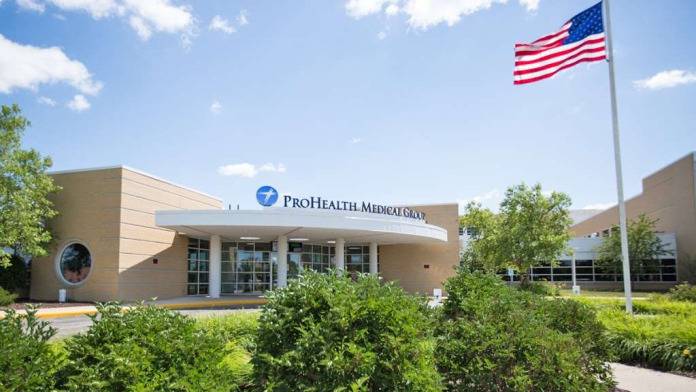
2 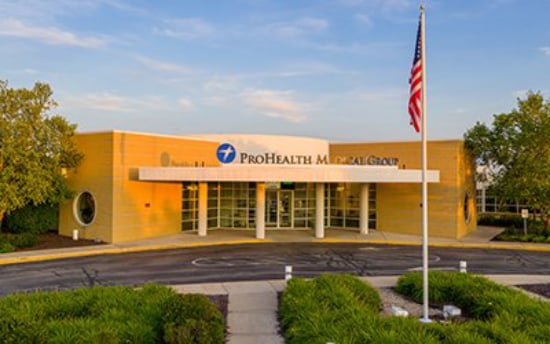
| |
Avenues Recovery Center at Fort WayneAd This is an ad and Avenues Recovery Center at Fort Wayne is a paid advertiser. Paid advertisers may be listed first in search results. This ad may contain content provided by the advertiser. Rehab.com does not verify ad content or any reviews that are displayed. Learn More Fort Wayne, IN | Situated in Fort Wayne, Indiana, Avenues Recovery Center is a modern, hotel-like addiction treatment facility. They offer a full continuum of care from inpatient detox, residential, medication-assisted treatment (MAT), outpatient and aftercare programs. They have a 95% long-term sobriety success rate. Residential treatment can begin with detox if n | Treatments Programs Payment Options | View Website (260) 235-5900 | Avenues Recovery Center at Fort Wayne has no reviews yet. Leave a review.
| 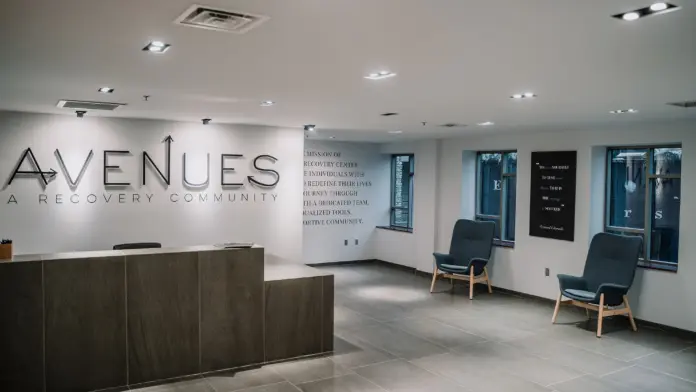
6 6 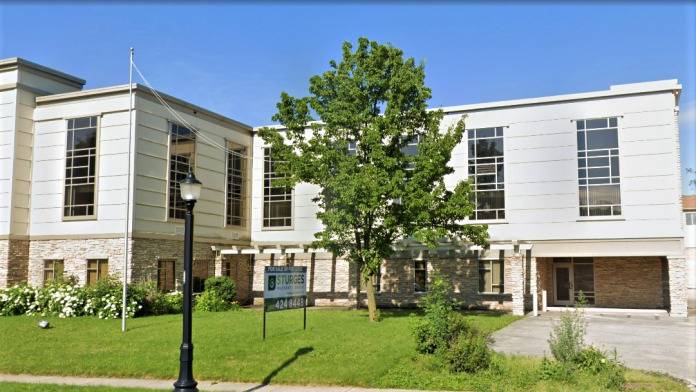
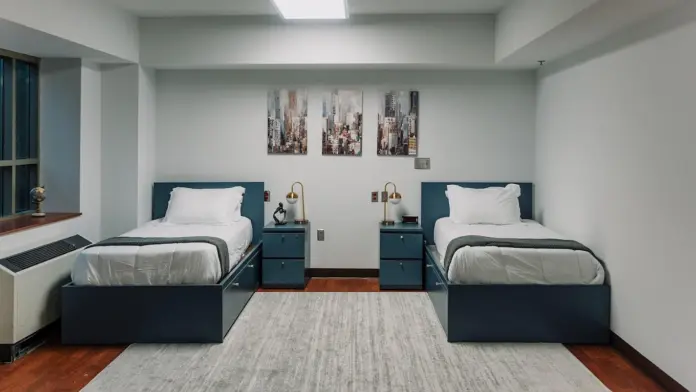
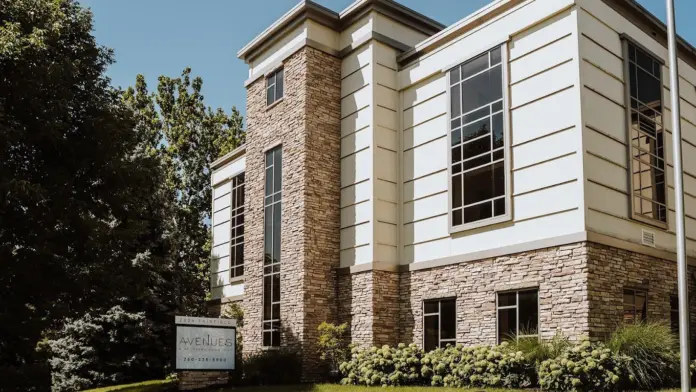
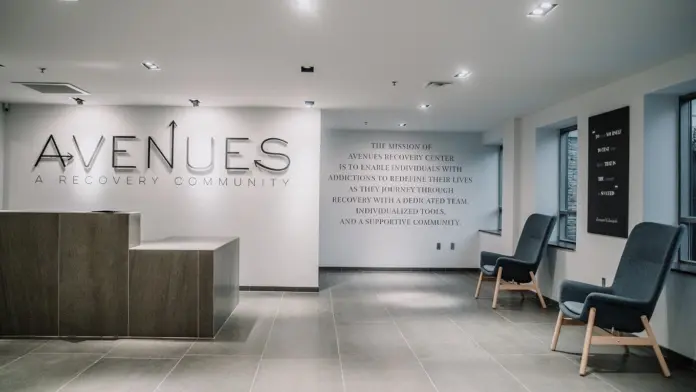
|
Oconomowoc, WI | South Street Clinic offers substance abuse recovery and mental health treatment in Oconomowoc, Wisconsin. The clinic offers evidence-based approaches with various therapies to help guests overcome addiction for good. South Street Clinic provides flexible care designed to help you recover while maintaining your daily responsibilities at home, work | Treatments Programs Payment Options | I am actually just interested in contacting this provider as it would be very convenient as I live just down the street. I am not able to find a contact... if an owner or provider could please respond with a phone number please.
Elizabeth Henry
2 years ago
| ||
Waukesha, WI | WisHope Recovery provides substance addiction treatment for adults in Waukesha, Wisconsin. They offer residential and outpatient services. They also have extended care treatment for those who need more support before returning home to regular activities. Their residential treatment is appropriate for those who need more structured living where the | Treatments Programs Payment Options | Wishope is unlike any other treatment facility I’ve been to or seen in my experience of reaching out for help with addiction. They offer so many benefits and opportunities to help everyone come together as a community and heal. Wishope takes each person individually and provides them with the care they need, because everyone has a different story and they understand that. Wishope saved my life and my perspective of AA and NA, along with the way I view myself and what I have to offer in this world. I wouldn’t be who I am or where I am in life without this program. Thank you Wishope!
maddison walldan
2 months ago
Finding purpose at Wishope
Working at WisHope has been more than a job - its been a journey of growth, healing and purpose. Everyday, I get to witness transformation, not just in the lives of those we serve, but in myself as well. Being part of a team that helps people rebuild their lives from addiction has taught me compassion, resilience, and the power of hope.
This place isn't just an addiction treatment center - its a second chance for everyone who walks through its doors, including me. Growing in my career through this company has reminded me that meaningful work truly changes lives, starting with your own.
Zack Kreuz
8 months ago
This place saved my life.
Nicci Greene
8 months ago
| 
3 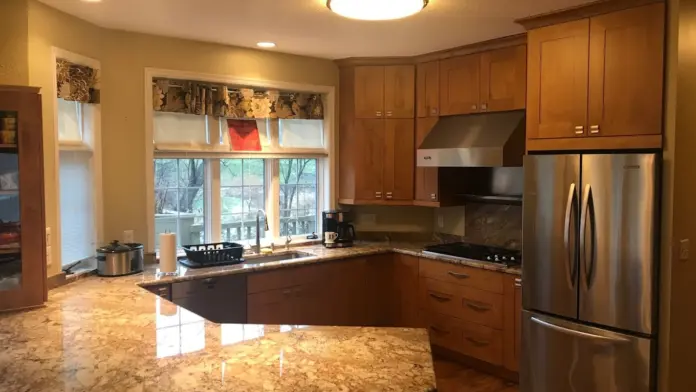
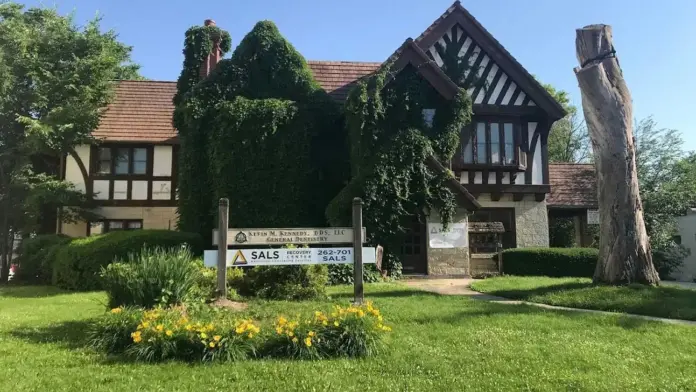
| |
Brookfield, WI | Brookfield, Wisconsin is home to Ascension SE Wisconsin – Capitol and Lilly. This hospital department provides advanced approaches for adults and youth battling substance use and co-occurring disorders. You can access various levels of outpatient care to meet you where you are in your journey. Their programs offer a person centered approach, prov | Treatments Programs Payment Options | She listens more and helps in methods to help with my questions and problems
Silvia Flores
3 months ago
Dr. Rao is always kind and considerate.
He always listens
Linda Liberski
4 months ago
Ngozi Obiora is fabulous!! She really cares about her patients, listens to all concerns and is a warm friendly but always professional.
gwen luedcke
4 months ago
| 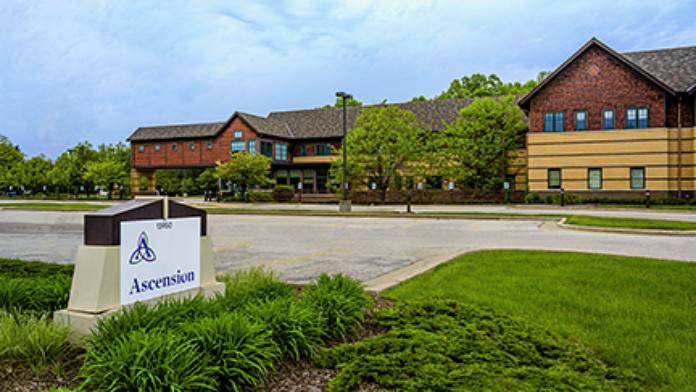
| |
Top Wisconsin Cities | |||||
West Allis, WI | Rogers Memorial Hospital - West Allis is located in West Allis, Wisconsin. They offer mental health services and withdrawal management for adults. Medicare is accepted. A financial assistance program is available if you don’t have insurance coverage. Rogers Behavioral Health is a specialized addiction treatment center in West Allis, Wisconsin off | Treatments Programs Payment Options | Rogers one of the BEST PLACES EVER...I BEEN SOBER YEAR AND GOD,ROGERS,4DIMENSION.. MEETING HELP ME OVER COME THIS SICK DISEASE.
TERRELL WILLIAMS
Jason Lacey
4 months ago
They are doing a great job at this facility. I will be returning. lol. Jk. Hopefully not.
Brian Walters
8 months ago
Every member of staff was empathetic and caring, I highly recommend going here if you need mental health support. The psychiatrist listened to me and my concerns. Beds were comfy enough, food was alright. The groups were the best ones I’ve come across in inpatient facilities. Very nice outdoors area, and good therapy groups like art was very helpful.
Alexis Lee
8 months ago
| 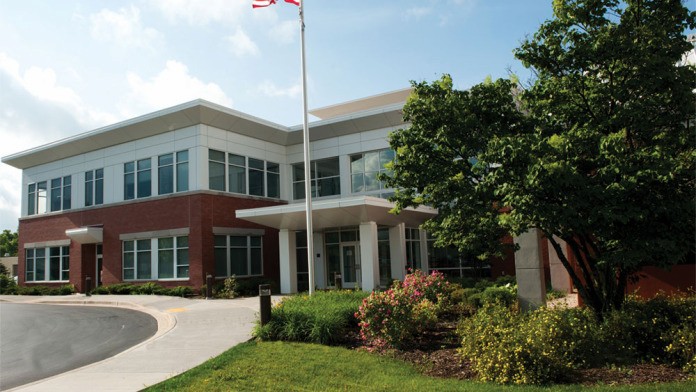
6 6 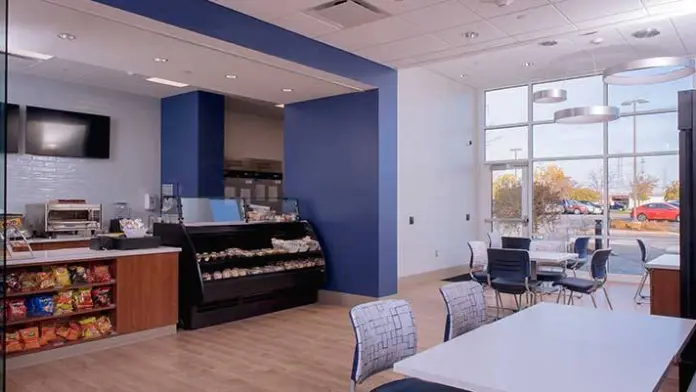
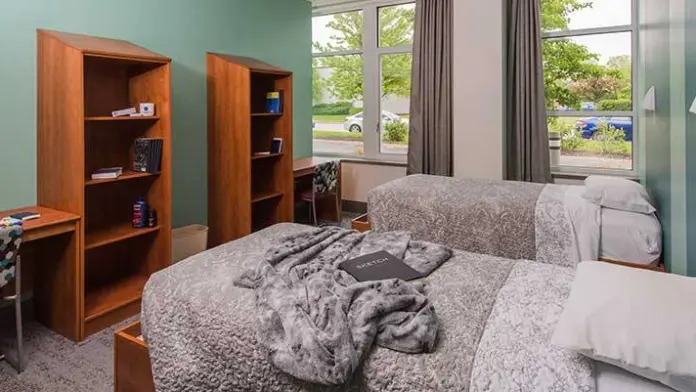
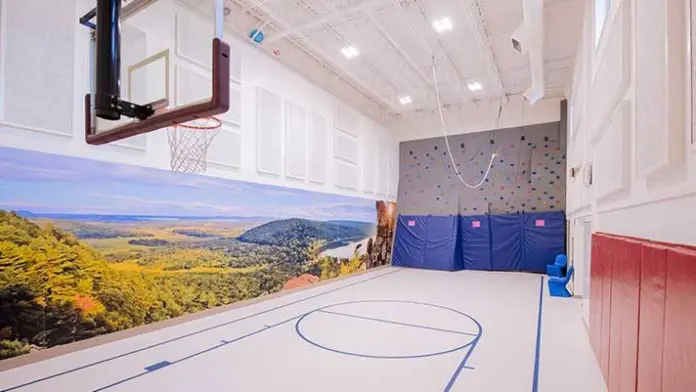
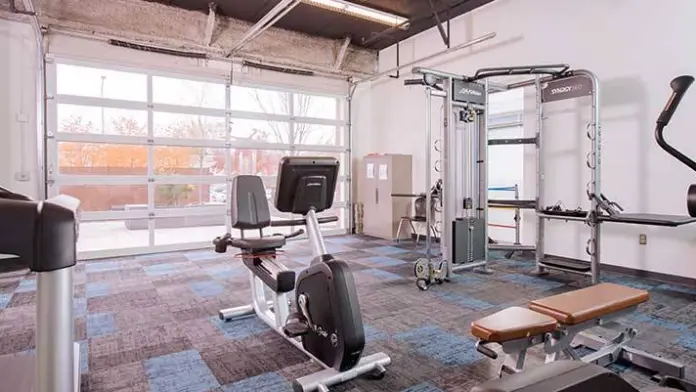
| |
Waukesha, WI | WisHope Recovery Center Is a drug and alcohol rehab facility located in Waukesha, Wisconsin. They treat people for substance use disorder and alcohol use disorder on both an outpatient and inpatient basis. They also treat people who have concurring mental health issues and addiction issues. A Typical Day Most of your day will be spent in group ther | Treatments Programs Payment Options | Wishope gave me a new opportunitty
Addison Morehouse
4 months ago
Wishope has been awesome for me. The material is outstanding and very relative to learning new life skills to beat addiction. The biggest difference from this facility is them slowly intergrading you into everyday life. You are exposed to everyday life while in here and still held accountable with positive reinforcement. I was able to practice meditation and other useful skills that are needed daily. The staff are amazing and have been very caring along with very willing to help in any way possible. My house managers have been great. The best one yet has been in the apartments. She is outstanding, kind, listens to all of your needs and is more than willing to help you in any way that she can. I cannot say enough about the staff and the program. Both are awesome!!!! I am lucky I found this place. My current therapist is amazing and the therapist I had before him was amazing.
The only complaint I have had since I have been here is much of the housing is very run down. Much of it needs new flooring badly.
Tjhart Hart
4 months ago
I came to Wishope in August of 2025. I had just relapsed after having over a year clean and sober. Wishope took me in and met me where I was at.
What I mean by this is the staff recognized what my strengths and what my struggles were. I was given the support to deal with the death of my best friend. In addition I was taught and given assistance in refining coping techniques.
Upon completing the 30 day inpatient program I was granted a spot at their sober living apartments and given additional outpatient treatment.
Since I arrived at the apartments I have returned to work for my previous employer and strengthened my mental and physical help.
Wishope believed in me when I didn't believe in myself. I am becoming the best version of myself and I am eternally grateful to Wishope. I have been to other treatments and unlike some treatment centers, Wishope built me up rather than tearing me down. Thank you to everyone at Wishope. Not only have I gotten my life back, I have made lifelong friendships
Travis Belisle
4 months ago
| 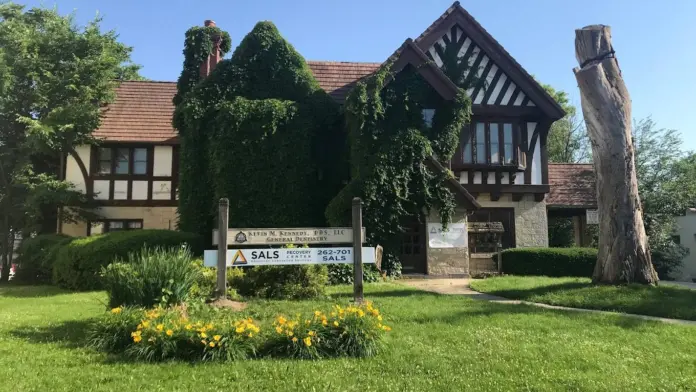
| |
West Allis, WI | Located in Milwaukee, Wisconsin, Community Medical Services has outpatient addiction treatment services for adults. Here you’ll find a holistic approach to treating substance abuse that includes counseling, medication assisted treatment, and peer support. A specialized program for pregnant women with opioid addiction helps provide prenatal care a | Payment Options | This place saved my life . People need to learn patients in recovery and understand the nurses only move as fast as they can thank you cms
Jessica Hruzek
3 months ago
Best place for treatment in my opinion hands down staff is awesome nice atmosphere highly recommend this place
Allen Schmitt
5 months ago
Jessica hruzek here to say thank you for the patience people can be terribly inpatient and rude I'm talking about the patients not staff. Let me say one thing if you have to wait for you dose people it's not the end of your life you will receive it. It pathetic how people still carry such addictive behaviors.
I want to say Dr Dan is the best doctor by far I live Sandra,Milton, I love all the nurses tho I do just can't think of every name of top of my head.
Just grow patience in life it will show self control and also respect
Patient 1646
Doug Ruehl
8 months ago
| 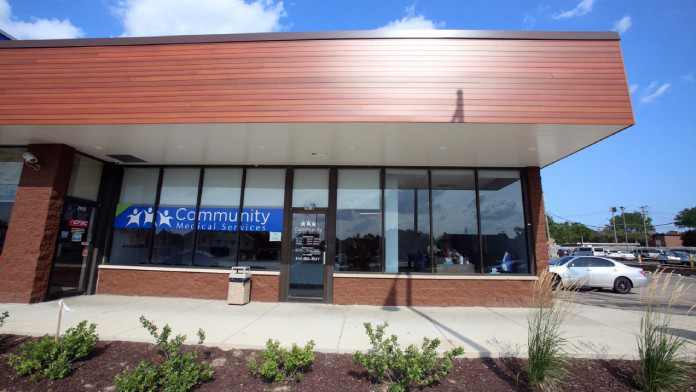
3 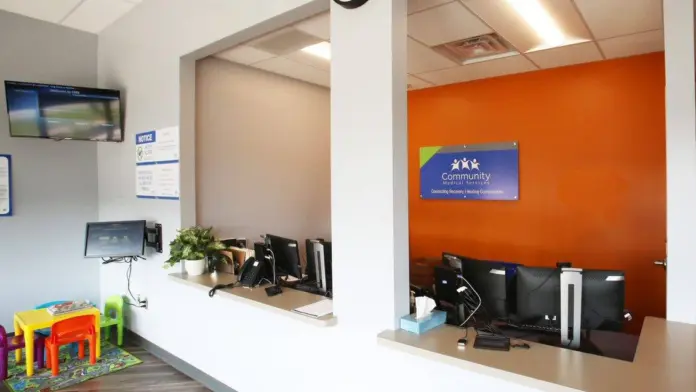
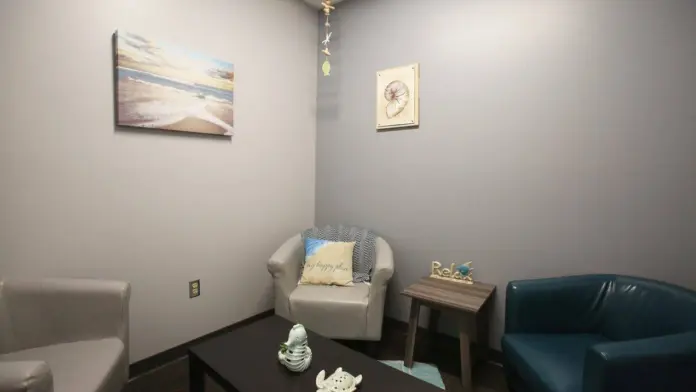
| |
Avenues Recovery Center at IndianapolisAd This is an ad and Avenues Recovery Center at Indianapolis is a paid advertiser. Paid advertisers may be listed first in search results. This ad may contain content provided by the advertiser. Rehab.com does not verify ad content or any reviews that are displayed. Learn More Indianapolis, IN | Avenues Recovery Center at Indianapolis is a 144 – bed detox and residential rehab facility offering drug and alcohol addiction treatment. Located in the heart of Indianapolis, Avenues offers an evidence-based clinical program, comprehensive medical care, and custom MAT options – consistently yielding highly effective results. Its multidisc | Treatments Programs Payment Options | View Website (463) 221-4959 | Avenues Recovery Center at Indianapolis has no reviews yet. Leave a review.
| 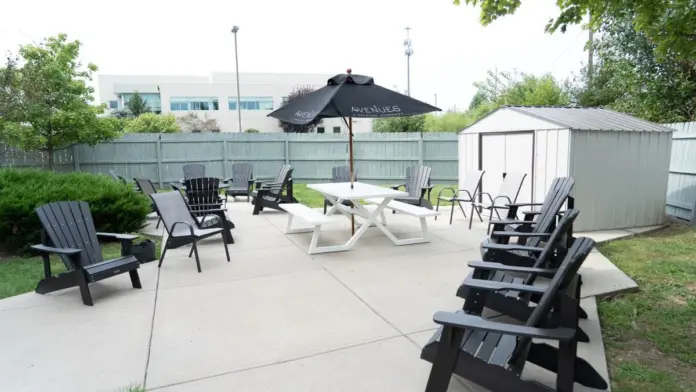
6 6 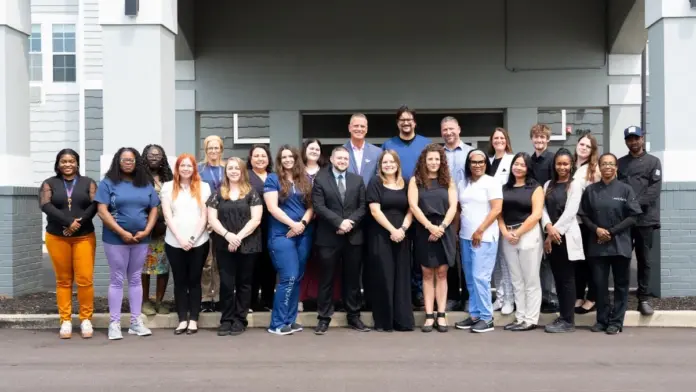
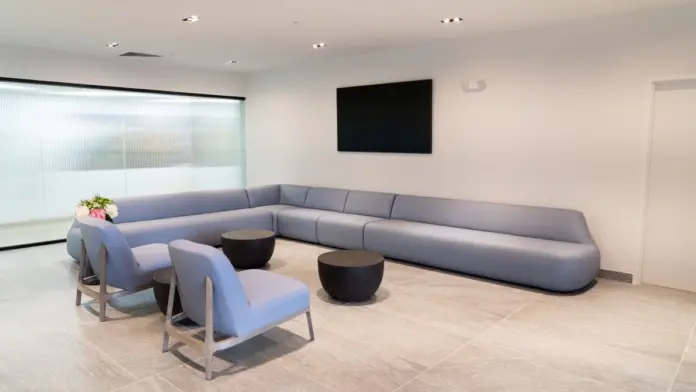
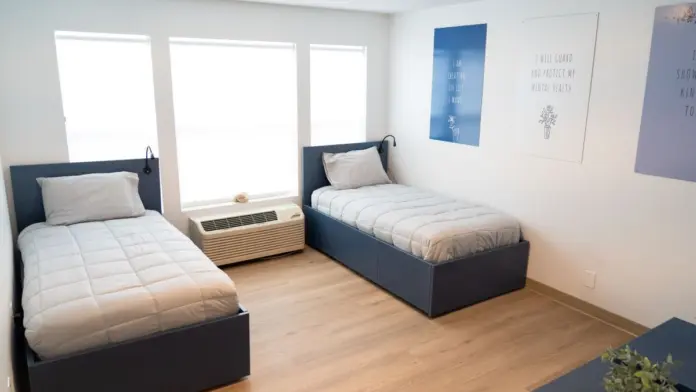
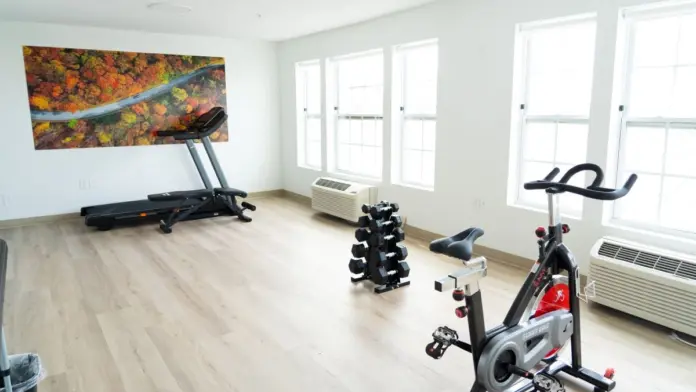
|
Waukesha, WI | Lutheran Social Services (LSS) - Cephas House provides transitional residential services to adult males referred by the Department of Corrections. Lutheran Social Services (LSS) - Cephas House is l Motivated by the compassion of Christ, they help people improve the quality of their lives. Their vision is to change the world – one grace filled | Treatments Programs Payment Options | I tell you this much I did this program in 2015 or 16 and om a way better person today than I ever was this place was the best in the state
Greg Sheffield
10 months ago
I think this place benefits everyone that comes to it. There was this one guy though that kept talking about getting loads all the time. There was another guy that was born a mouse and now is growing into a rat, He smoked weed the whole Time. Made it hard to focus on my recovery. Then he did the perky dance right outta here. Kim is a wonderful staff member along with Karen. The rest of the staff isn’t bad either.
Keeg
2 years ago
They are giving me every tool to be successfull its up to me to use them.
Eric Gittens
6 years ago
| 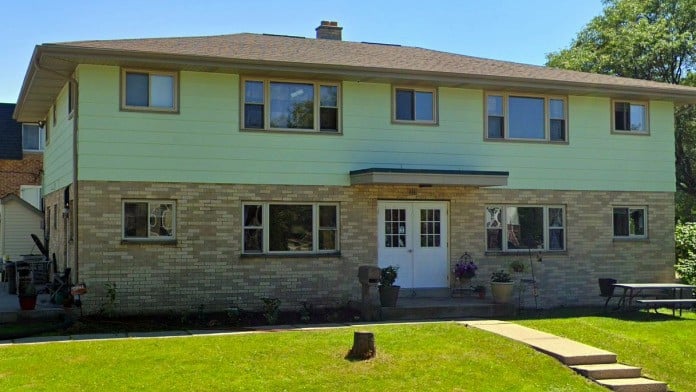
| |
Waukesha, WI | ProHealth Care - Big Bend Rd. in Waukesha, Wisconsin, is a facility offering support for mental health and behavioral health issues, including substance abuse. Levels of care include outpatient treatment, medication assisted treatment, a partial hospitalization program and an inpatient program. Treatment is available for young adults, men, women an | Treatments Programs Payment Options | Fast, friendly and professional. Thank you
sharon lord
2 months ago
I took my 6 month old son to this urgent care location on Friday, November 21. There was little to no wait. The nurse was very kind and so was the PA, Kayde. They were thorough and very patient and understanding. I even forgot a diaper and they were kind enough to provide me with one. I would definitely recommend this location.
Kelsey Margelowsky
3 months ago
It was quick to get in. I checked the wait time before I went.
Carl M
3 months ago
| 
4 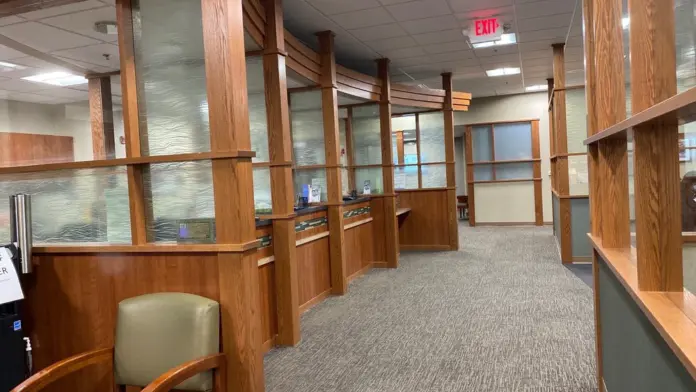
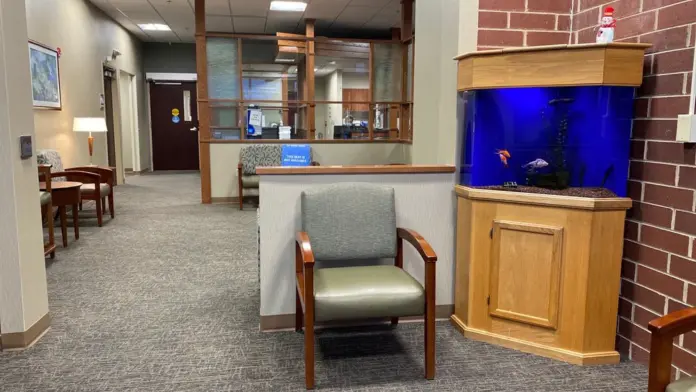
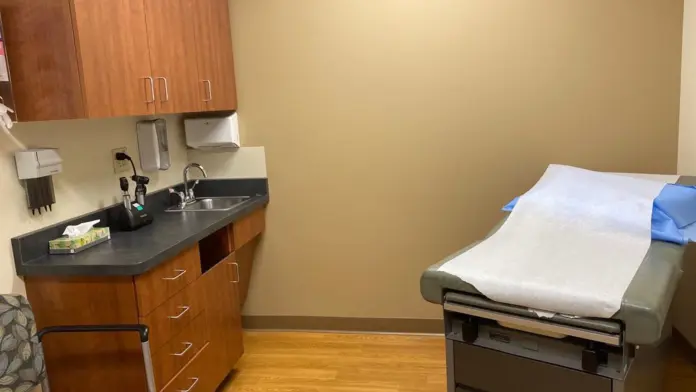
| |
Delafield, WI | ProHealth Care in Delafield, Wisconsin, is a facility specializing in primary and urgent care. Levels of care offered include referral for outpatient treatment, medication assisted treatment, a partial hospitalization program, and an inpatient program. Treatment is available for young adults, men, women and elderly individuals of all ethnicities an | Treatments Programs Payment Options | Fast service friendly staff
Greg Calhoun
2 months ago
Great medical service and care
Duane S. Reed
2 months ago
Staff was so kind, informative, and quick!
Abby Dambeck
2 months ago
| 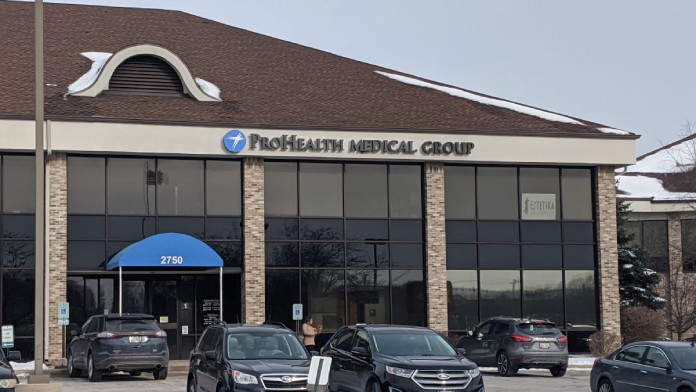
| |
Slinger, WI | The Manor is a private and secluded drug and alcohol rehabilitation facility hidden in the hills of Slinger, Wisconsin. The focus of the residential rehabilitation campus is an elegant manor with over 24,000 square feet of space and stylish amenities. They serve men and women 18 years and older. The Manor’s holistic approach to recovery foc | Treatments Programs Payment Options | Our son is just finishing his 4 week stay for marijuana addiction. i do not know how his long term recovery will go, but the staff at The Manor (particularly Dr Thomas) have been incredibly supportive to us. I did a tremendous amount of research prior to selecting The Manor. I have been reassured throughout this process by their caring staff. I'm so grateful that I found it.
6 years ago
My family was encouraging me to get help. I put it off as long as possible. If I was going to treatment, I wanted a very nice program and a private room. I finally went to The Manor. This place saved my life. The staff were very patient with me. I had been to treatment before but it was nothing like this program. I liked having individual therapy. Also, my wife and I had a lot of couples counseling. I was also able to do some work and that helped relieve stress about losing clients or my company. I have been home now for several months. It has been difficult at times but I am doing well. I have my life and my family back.
6 years ago
I was given an ultimatum by my wife. Go to The Manor or get a divorce. You do a lot of hard work there and within two weeks it was clear that my addiction to meth was a co addiction evolving primarily from my addiction to a controlling and mentally abusive wife. The staff is wonderful..they ask the tough questions but we do the work. I'm now happily divorced and drug free! Thank you to the amazing staff!
7 years ago
| 
5 5 



| |
Brookfield, WI | ProHealth Care in Brookfield, Wisconsin, is a facility specializing in mental health and behavioral health issues, including substance abuse. Levels of care offered include medication assisted treatment, outpatient, partial hospitalization, and an inpatient program. Treatment is available for young adults, men, women and elderly individuals of all | Treatments Programs Payment Options | From start to finish was an amazing experience the receptionist was very polite and nice The medical assistance that called me back to take my vitals and get me ready for the physician to see me she was very nice great talker and was very gentle The physician was very professional very nice very kind and understanding.
All Of Our Love Homes
2 months ago
Thanks for a great experience. I made an appointment online the night before and I was seen right on time.
Linda Kolb
2 months ago
Got me in quickly, I had an eye infection & the called in a prescription for drops. Everyone was so nice & I was out in no time.Thank you!
Mari Konkel
3 months ago
| 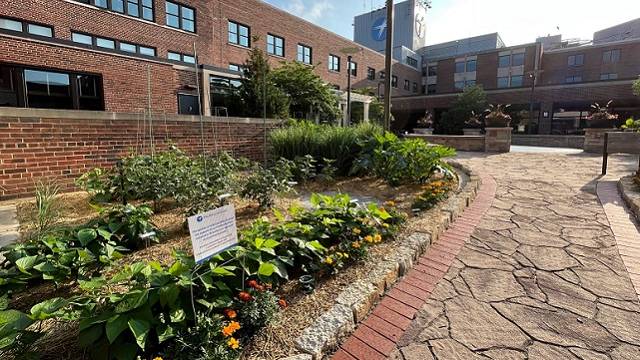
| |
Waukesha, WI | Waukesha Comprehensive Treatment Center is a recovery center located in Waukesha, Wisconsin that specializes in helping individuals overcome opioid and prescription medication addiction. Waukesha Comprehensive Treatment Center (CTC) provides a holistic approach that not only focuses on the physical parts of addiction but the emotional ones as well. | Treatments Programs Payment Options | If you need help getting your life on track and you struggle with addiction this is the place to go. I tried many other avenues and nothing worked. The staff is super friendly. Jeff has done a great job giving patients multiple ways to check in. No longer do you have to guess your place in line with the new system. I never wait more than 5 minutes and honestly I am usually able to walk in and walk out within 2 minutes. The nursing staff truly care about you. It has been sad to see some people who work there (like counselors) leave but that’s life. People move on to bigger and better things. I would recommend this place to anyone wanting help with opioid addiction. They helping me regain control of my life.
James Bunda
4 months ago
The nurses are very kind and compassionate. The counselors care about your progress and work with your schedule as much as possible. If you are serious about treatment, you will have a positive experience here.
B. C.
4 months ago
Love the staff!
Will Sebelik
4 months ago
| 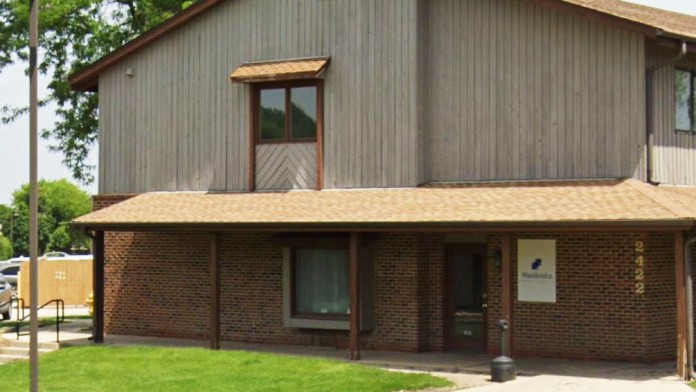
6 6 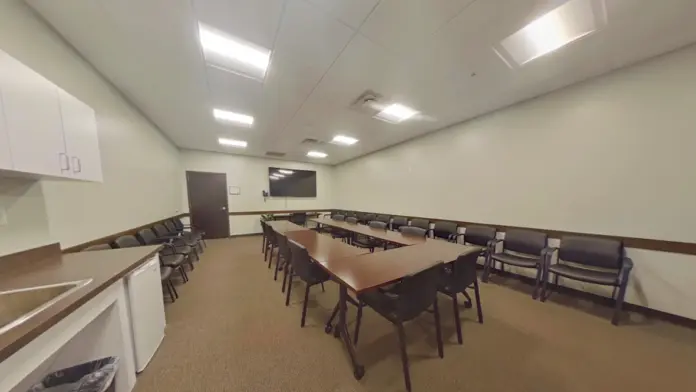
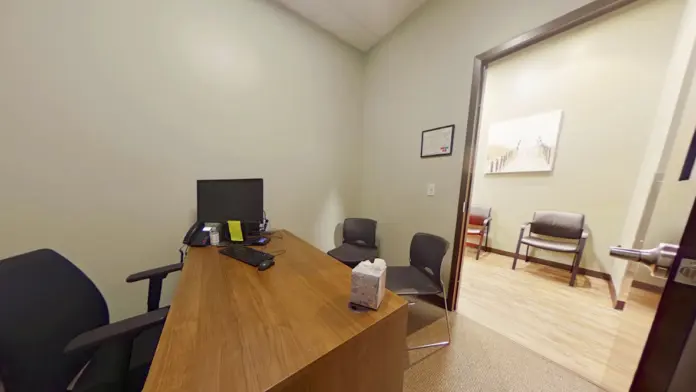
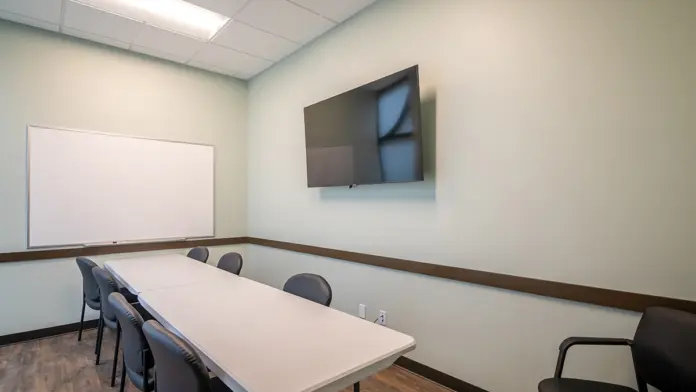
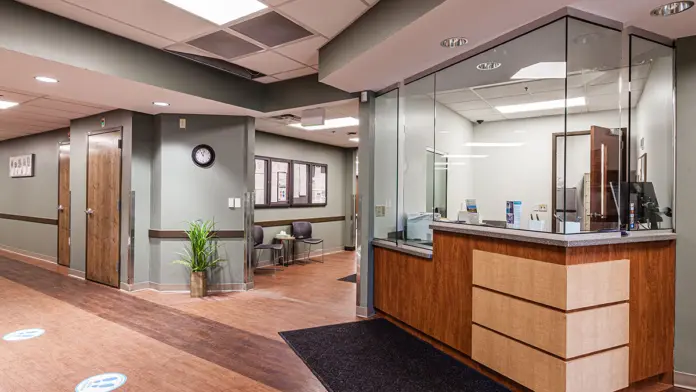
| |
Avenues Recovery Center at South BendAd This is an ad and Avenues Recovery Center at South Bend is a paid advertiser. Paid advertisers may be listed first in search results. This ad may contain content provided by the advertiser. Rehab.com does not verify ad content or any reviews that are displayed. Learn More South Bend, IN | Avenues Recovery Center at South Bend is a 120 – bed residential facility offering drug and alcohol detox and inpatient rehabilitation services. Our expansive building is newly renovated, modern and appealing, offering a serene haven for healing and restoration. Centrally located yet on its own private campus, Avenues at South Bend provides t | Treatments Programs Payment Options | View Website (574) 345-0246 | Avenues Recovery Center at South Bend has no reviews yet. Leave a review.
| 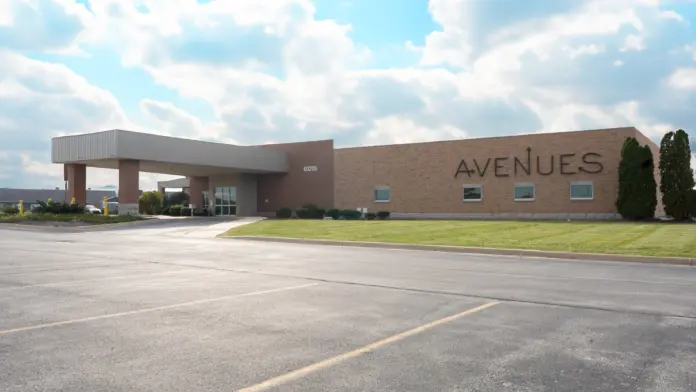
4 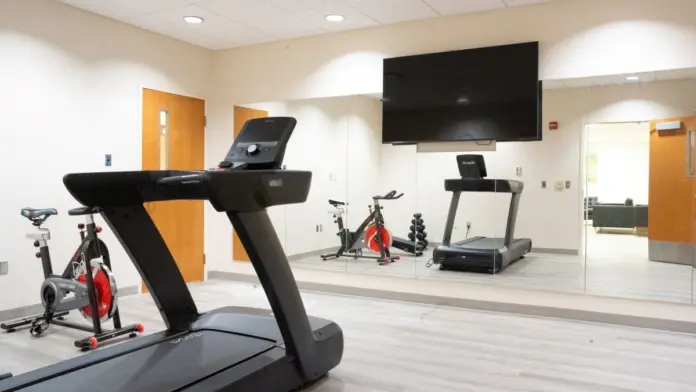
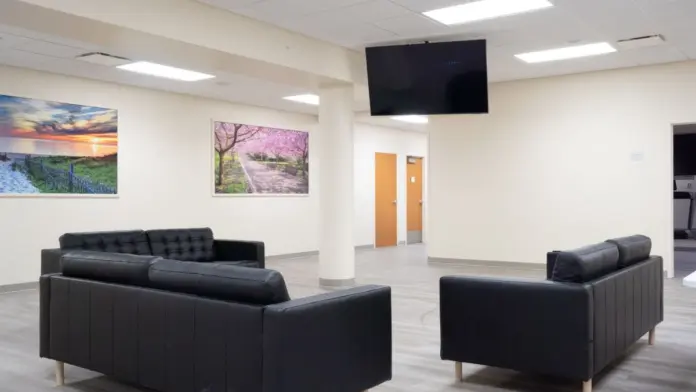
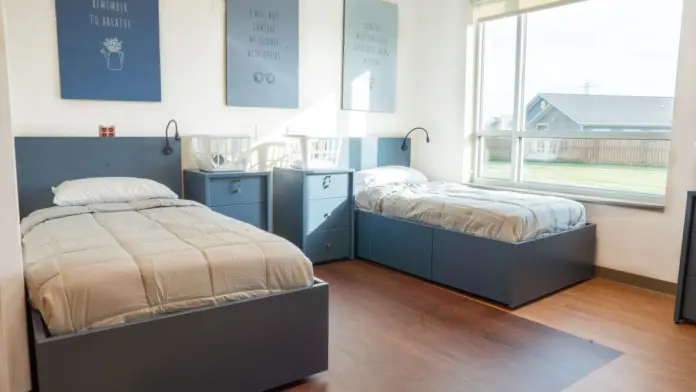
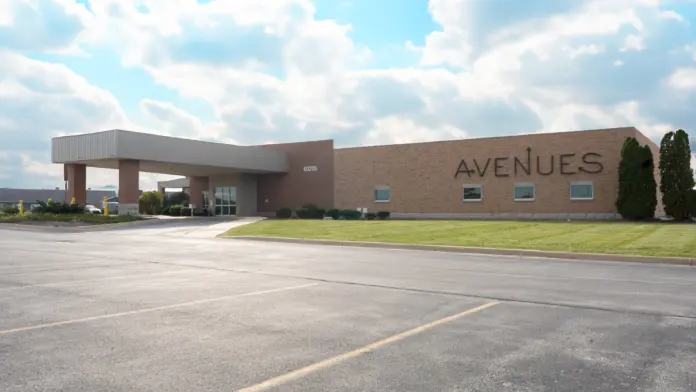
|
Watertown, WI | The goal of ProHealth Medical Group Clinic in Watertown, Wisconsin, is to assist you in achieving and sustaining long term recovery from drug and alcohol abuse. They offer complete support for a range of substance use disorders including alcohol, prescription painkillers like OxyContin and Vicodin, and illicit drugs like heroin and cocaine. Your | Treatments Programs Payment Options | No one wants to go to Urgent Care, but if you do, this is the place to go to. I Had maybe a 5 minute wait, and the staff were all wonderful. Left feeling like I was well cared for and was not rushed in and out.
Thx 😊
Marie Schick
2 months ago
Everyone was friendly
Wes White
2 months ago
My experience with ProHealth was top notch from scheduling my appointment to leaving the office after my appointment! Everything went quickly and smoothly and staff was very kind and friendly.
C Brown
2 months ago
| 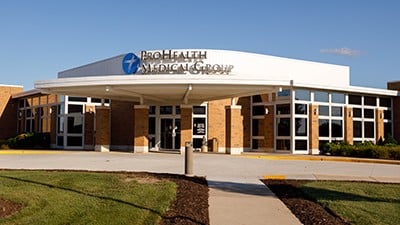
| |
Milwaukee, WI | Great Lakes Adult & Teen Challenge is a residential addiction treatment facility in Milwaukee, Wisconsin. They serve adult men and women affected by substance use disorder. They adopt a ‘whole person’ and Christ centered recovery approach involving lasting residential experience. This facilitates total recovery through spiritual guidance, couns | Programs Payment Options | If you’re searching for a drug rehab in Milwaukee, this is the place to start. They’ve helped so many men and women overcome addiction and find lasting freedom.
Kayla Anderson
4 months ago
Great job you guys singing at the RNC♥️ that was Phenomenal, so proud of all of you and your dedication to your life!
Tammy Garcia
1 year ago
God used Great Lakes Adult and Teen Challenge to change my life. Through the teaching and structure of this program I’ve been set free from 14 years of addiction, 10 of that being IV heroin and crack. There’s freedom in relationship with Jesus and this program will show you how to have that!!
Ryan Baker
2 years ago
| 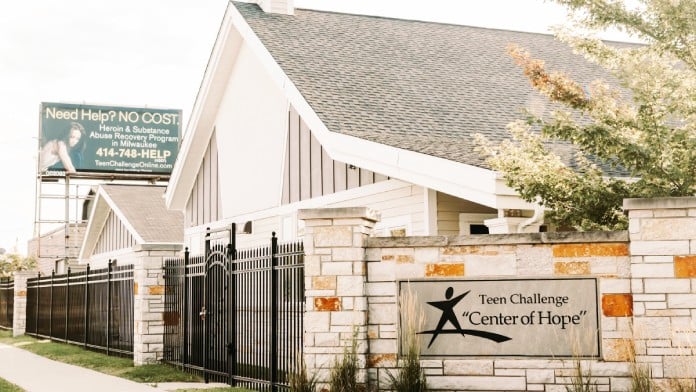
4 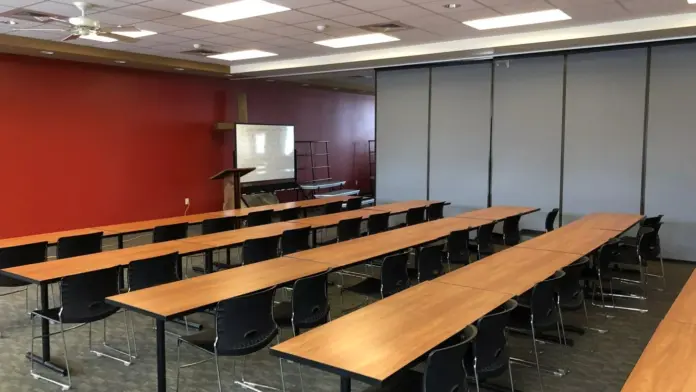
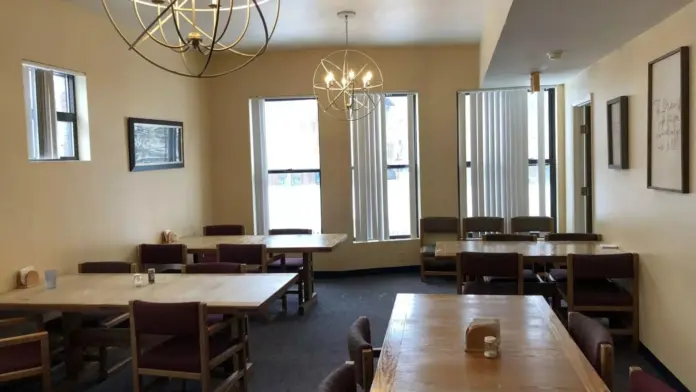
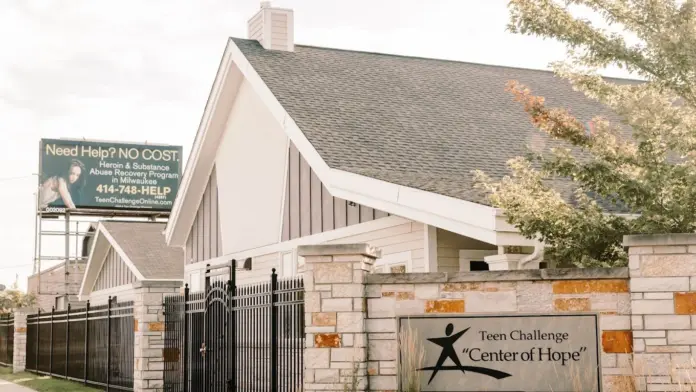
| |
Waukesha, WI | ProHealth Medical Group Clinic Pewaukee in Waukesha, Wisconsin, provides behavioral and mental health services in outpatient and inpatient settings. Their substance use treatment program provides care if you are addicted to alcohol, a variety of prescription drugs and painkillers, or illegal drugs such as heroin and cocaine. Their team provides com | Treatments Programs Payment Options | Got labs done today and all staff was very friendly and easy to work with!
Charlotte N
6 months ago
Dr. Jamie Jick has been remarkable doctor. She is an excellent diagnostic doctor, as well as, a caring, knowlegeable doctor. She has been an extremely kind hearted, compassionate doctor. I swear part of the reason I'm still around because of her! She has recognized several serious problems I've had in the past.
Judy Scanlon
1 year ago
Came her for a CT Scan. The place is well staff and professional. They now have free standing Kiosks to speed up the check-in process. There are people standing by to help patients use them, so it's not intimidating. I arrived a little early and got in after a short wait.
The CT tech (Megan) was terrific. Very welcoming, explained the entire procedure, and made sure that I was comfortable.
Scott W
2 years ago
| 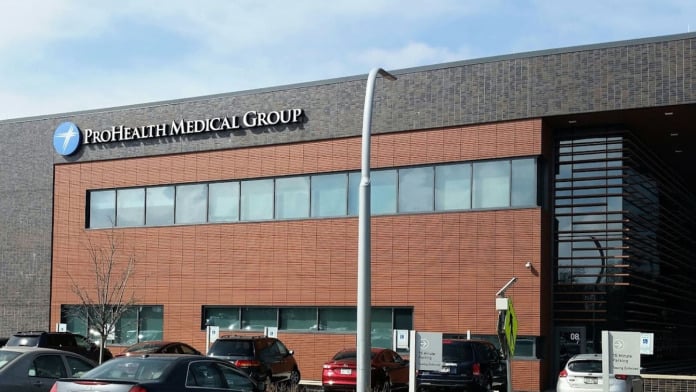
4 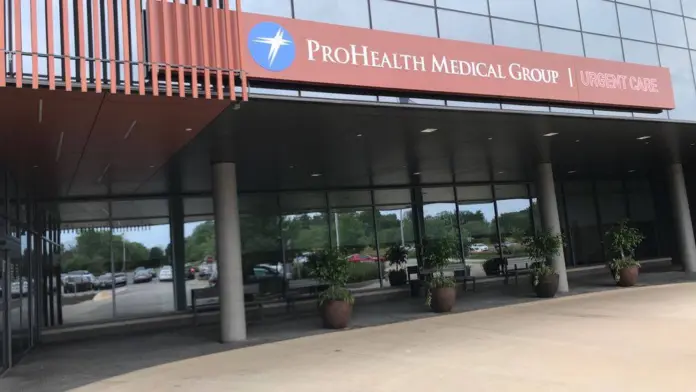
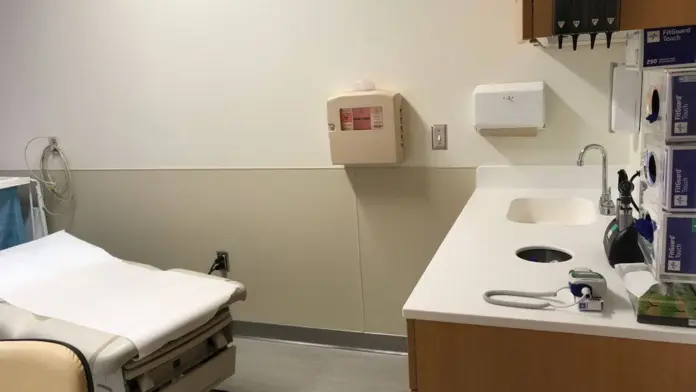
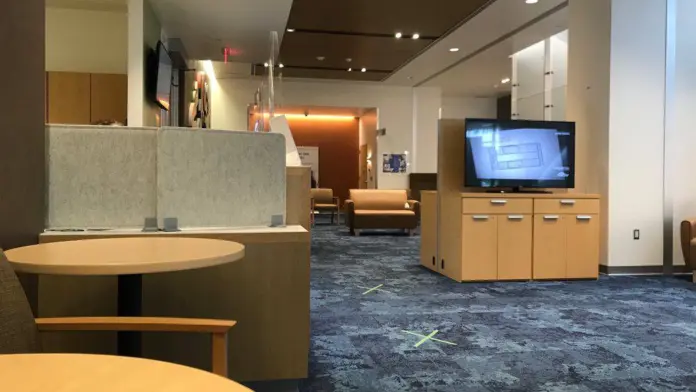
| |
Menomonee Falls, WI | The Community Recovery Center is located inside Froedtert Menomonee Falls Hospital in Menomonee Falls, Wisconsin. They offer an intensive outpatient program for anyone dealing with a chemical dependency. Medicare and Medicaid are accepted. A financial assistance program is also offered. The intensive outpatient program consists of five weeks. Indiv | Treatments Programs Payment Options | Nurse Jennifer S was world class - competent compassionate and fully engaged with providing superb care for my wife. I forget the names of the others but the ER front desk on 11/24/25 was a wonderful person and JJ the imaging tech was superb and Chris the X Ray lady was fast! PA Abigail Chang was great! And Dr Schiells was equally superb! Much appreciated!! No complaints from us please note this hospital is one of the best in the world. Better than Egyptian hospitals or Navy Hospitals or New Zealand hospitals or anywhere I have been. Just great!
Kiwi MGTI
3 months ago
This hospital was great.
Elon
5 months ago
Everyone here was wonderful. Nurses constantly checked up on me, doctors took good care of me. Entire staff was very friendly
The Mediocre Warrior
8 months ago
| 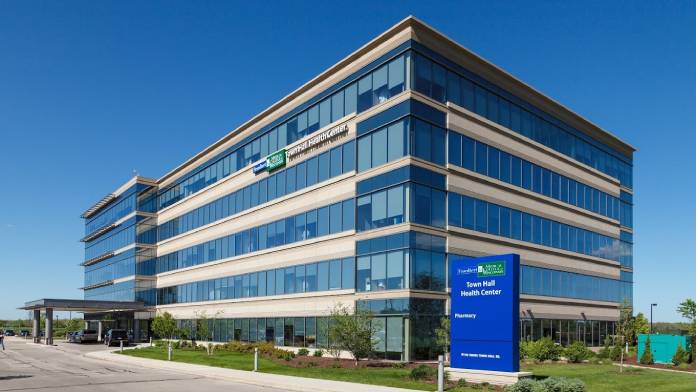
3 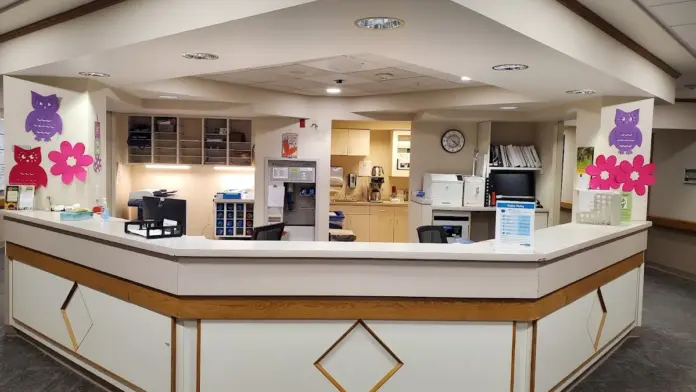
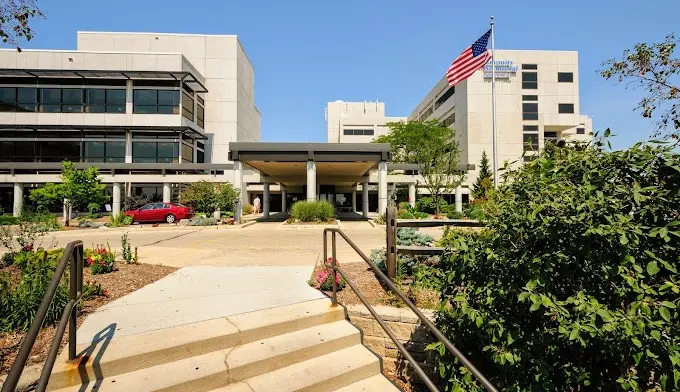
| |
Milwaukee, WI | American Behavioral Clinics – Bluemound Clinic in Milwaukee, Wisconsin, offers outpatient mental health and addiction treatment. Their services are designed to meet the needs of people of all ages. They offer adult addiction treatment and mental healthcare along with teen and child psychiatry and therapy services. Evidence-Based Addiction Rec | Treatments Programs Payment Options | Always talk about what bothers me. What I do to to relieve the stress and hurt that I have. Talk about the good things too. What I can do to even out the good and bad. Or are the bad things really that bad or just a d a you my physical pain making othe things worse. Gave Improve the Moment help. It works ( when I look at it) .LOL
Kris Sudbrink
2 months ago
Office staff are courteous and knowledgeable.
Sarah Mattrisch
2 months ago
I've been seeing Dr. Jim Winston for several years. He is very knowledgeable of different treatment methods, he's personable as well as a great prescriber.
Annie Ruka
2 months ago
| 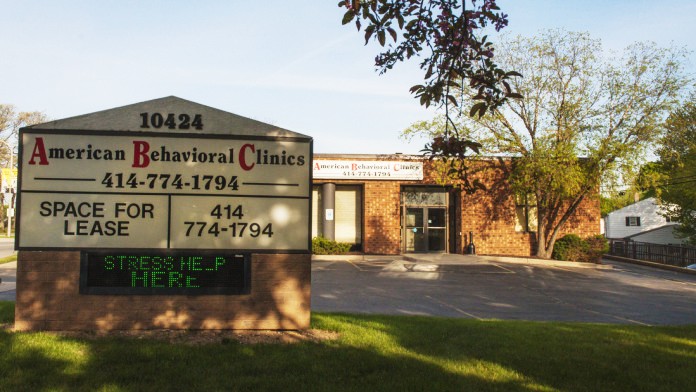
2 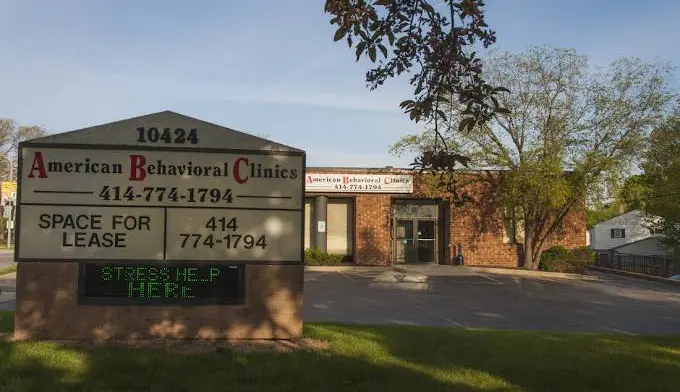
| |
Waukesha, WI | Iris Health Clinic is in Waukesha, Wisconsin, a western suburb of Milwaukee. They offer outpatient and residential treatment in an area with several nearby attractions that support your healing, such as the Waukesha County Museum and the Fox River Sanctuary. Inpatient and Outpatient Dual Diagnosis Treatment The program specializes in medical and th | Treatments Payment Options | Genuine people who truly care, Providing holistic therapies like Himalayan salt room to their residential treatment! Pretty amazing!
Casey Johnson
10 months ago
Staff is amazing! The owner puts 150% into the efforts at the facility and care for those who need it. By far a beautiful and well taken care of place.
Cody Christianson
1 year ago
This is, by leaps and bounds, the best clinic that I have ever been to in my life. The staff here is supremely nurturing, knowledgeable, genuinely caring, attentive, assertive, great listeners, sympathetic, a beautiful bourgeois of amazing folks. I recommend Iris to anyone and everyone you will be a 100% satisfied and changed for the good of man type person. Thanks Iris for changing my life!!!
Aaron Abel
6 years ago
| ||
Sandstone Care Treatment CenterAd This is an ad and Sandstone Care Treatment Center is a paid advertiser. Paid advertisers may be listed first in search results. This ad may contain content provided by the advertiser. Rehab.com does not verify ad content or any reviews that are displayed. Learn More Buffalo Grove, IL | Our Sandstone Care Treatment Center in Buffalo Grove, Illinois, helps teens, young adults, and their families overcome challenges with drugs, alcohol, mental health issues, trauma, and addiction. At our Drug and Alcohol Rehab Center, we focus on not only helping individuals overcome substance use, addiction, and co-occurring mental health condition | Treatments Programs Payment Options | View Website (888) 491-9937 | Sandstone Care Treatment Center has no reviews yet. Leave a review.
| 
|
Muskego, WI | ProHealth Care in Muskego, Wisconsin, is a facility specializing in mental health and behavioral health issues, including substance abuse. Levels of care offered include outpatient treatment, medication assisted treatment, a partial hospitalization program and an inpatient program. Treatment is available for young adults, men, women and elderly ind | Treatments Programs Payment Options | I have nothing but good things to say about ProHealth. Dr. Daniel Cheng is the best! Very knowledgeable, friendly, caring and easy to talk to. He also explains test results by calling me, something I don't get from the other doctors I've seen.
Donna Trapman
6 months ago
Amazing experiences with ProHealth Muskego overall! They really listen to you, don’t make you feel like a burden. And the doctors remember so much about you and treat you like a friend! Special shoutout to Dr. Daniel Cheng, as he has been an amazing primary doctor for me and my family members for years now.
Nicole Kompas
1 year ago
I have been going to Prohealth for a very long time. The thing that keeps us coming back all this time is the dedication of our primary care physician. A big shout out to Dr. Daniel Cheng. He's friendly, helpful and professional. Never fails to call the next day to check on us, or give us test results.
Scott W
1 year ago
| 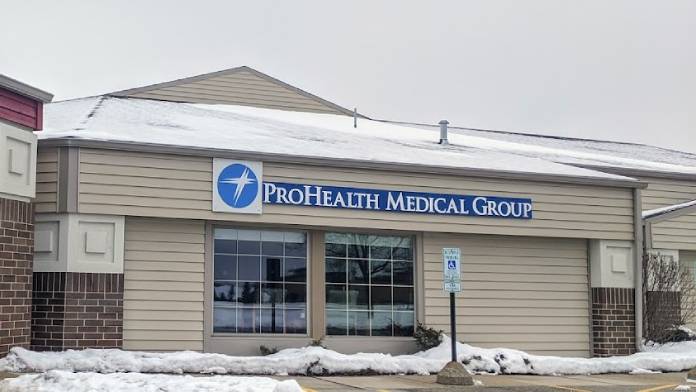
3 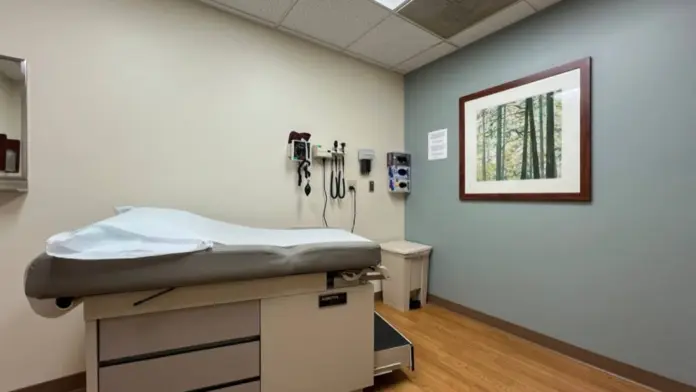
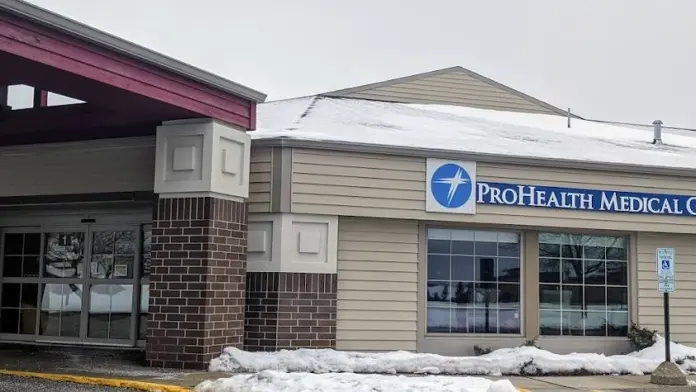
| |
Sussex, WI | ProHealth Care - Corporate Circle Drive is a private hospital that offers rehab located in Sussex, Wisconsin. ProHealth Care - Corporate Circle Drive specializes in the treatment of mental health and substance abuse. ProHealth Care provides outstanding care across a full spectrum of services that includes recovery treatments for substance abuse and | Treatments Programs Payment Options | Dr Morgan is a wonderful doctor he listens to what you have to say and gives you the best care. Also his nurses are the best in the business they truly care!!
Laura Cavanaugh
1 year ago
Dr. Ciriacks is an awesome dermatologist. Very personable, knowledgeable, engaged, and caring. Nursing staff with him are very nice also
Tyler Poblocki
3 years ago
I have good experiences there, my doctor and nurse are very nice (Dr.Baskaran &Nurse Janice) they’re very respectful and continue to provide me great care despite my indescisiveness and constant use of WebMd😆. They communicate well and respond quickly to me on MyChart aswell.
Everything is always clean and organized and is done in a orderly fashion.
Nyle Moore
3 years ago
| 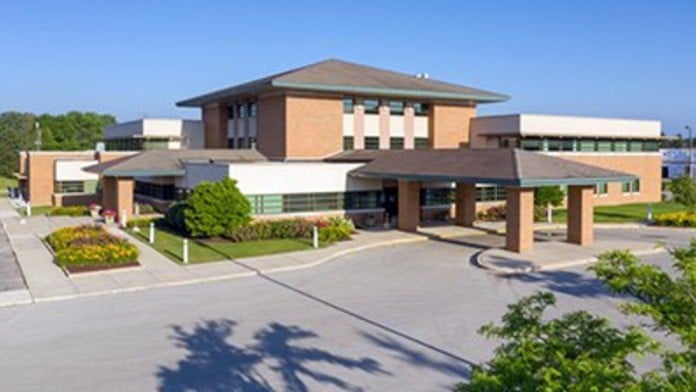
2 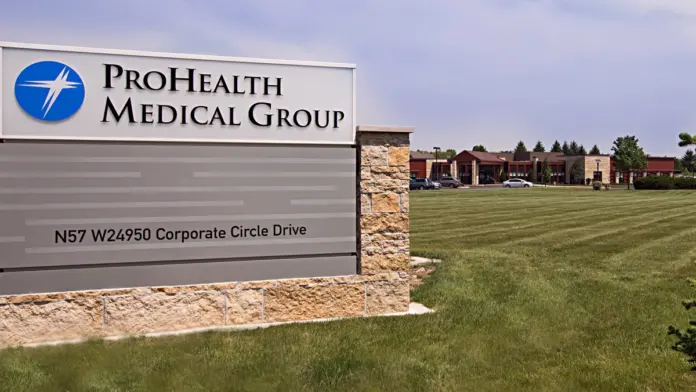
| |
Milwaukee, WI | The Westgrove Clinic is located in Milwaukee, Wyoming. They specialize in treating adults who are struggling with mental health conditions and substance abuse disorders. They offer intensive outpatient care (IOP), individualized treatment planning and therapy, medication assisted treatment (MAT), relationship counseling, psychiatric care and afterc | Treatments Programs Payment Options | The help I get from my counselor helps me a great deal with the problems I have in dealing with a number of problems I have.
Living in a group home has many drawbacks including sharing a bathroom with 2 men.
I have always lived alone, sharing only with a cat.
Barbara Froelich
3 months ago
In my experience West Grove is one of the best clinics you can go to for recovery mental health and addiction treatment I've been going there for years and it's been great and it's helped me immensely I highly recommend if you need help with treatment or recovering that you call West Grove. Dr Kurter is an awesome doctor gray guy and he is help me in many many ways and still does to this day.
Richard Marciniak
4 months ago
Justin, Ashlee, and Donny in reception are amazingly friendly and super helpful when I came here for my 1st appointment! Felt very welcomed and cared for.
Dr. Neiswander is very knowledgeable and really took time to hear my concerns and to guide me with my health concerns I'm
Alan Simmons
6 months ago
| 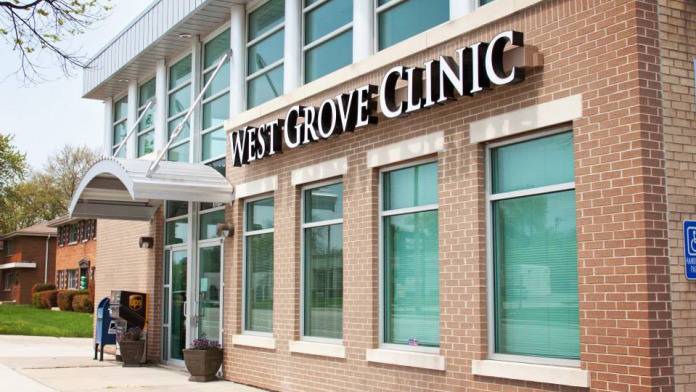
3 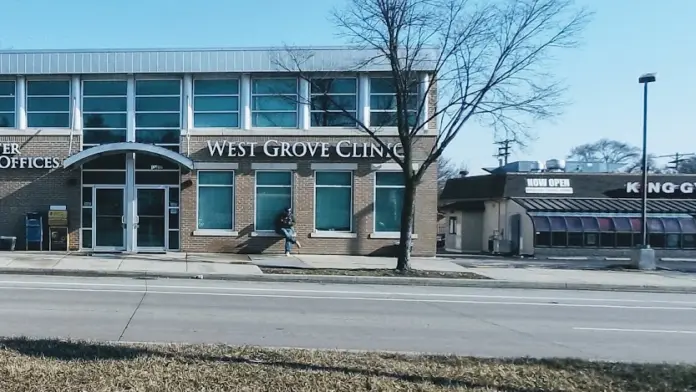
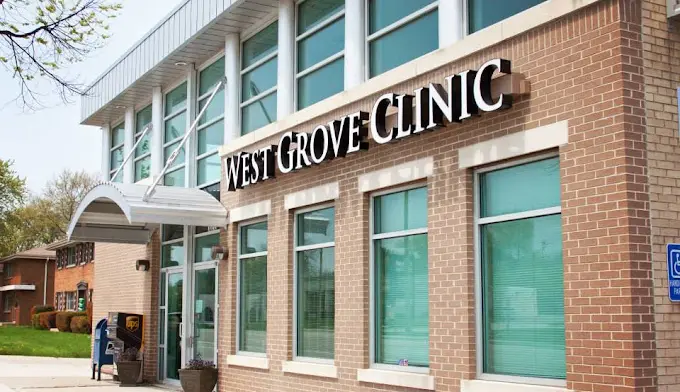
| |
Milwaukee, WI | The Great Lakes Men’s Rehab Center of Hope is considered one of the top Adult & Teen Challenge facilities in the United States. The property consists of the Don Wilkerson Memorial Chapel, the Center of Hope Men’s Dorm, the White House Administrative Building, an eight-unit staff housing building, and a full-service vehicle facility. The Great L | Treatments Programs Payment Options | I can’t say enough good things about my time at Great Lakes Men's Rehab. From the moment I arrived, the staff made me feel welcomed and understood. They provided the support I needed while creating a comfortable environment.
The program was well-structured and focused on real recovery. The group sessions and individual therapy helped me confront my challenges head-on and gave me the tools to move forward. I also appreciated the emphasis on personal growth and building a support network with other men who were going through similar struggles.
Thanks to Great Lakes, I feel stronger and more hopeful about my future. I highly recommend this place to anyone looking for help with addiction. The support and guidance here can truly change your life!
Exceed Social
11 months ago
a great organization that really cares about the well-being of its residents. my brother was able to get passed his addiction and reunite with his family. i was able to visit during family days and he was a different man. thank you.
kat Landers
2 years ago
| 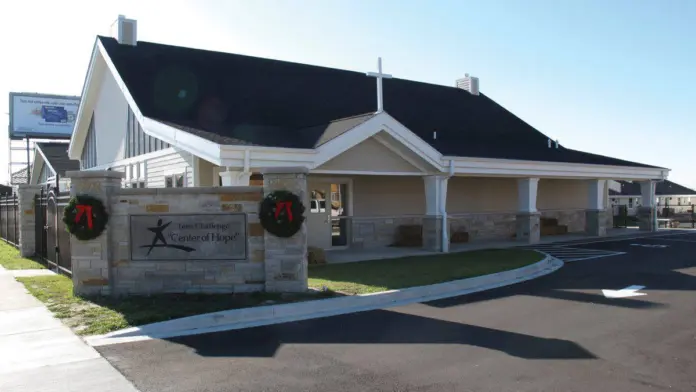
|

Wisconsin is ranked 19th nationwide in terms of addiction treatment affordability, with an average cost of addiction treatment of $56,625.
The costs of drug and alcohol rehab in Wisconsin vary widely and depend on several factors, including:
The costs of addiction treatment listed for cities and states are averages based on the cost of the treatment types listed above. These averages are high due to the cost of medical detoxification and residential inpatient rehab programs.
These numbers also reflect the raw cost of drug rehab, before any insurance coverage. The typical individual seeking addiction treatment can expect to pay much less for outpatient or intensive outpatient services than the averages listed below.
There are many ways to pay for drug rehab in Wisconsin. Most treatment centers accept cash or self-payment, as well as private health insurance. However, there are many treatment centers in Wisconsin that accept Medicaid and Medicare, or offer sliding scale payments or other low-cost payment options. Here’s the complete breakdown of how to pay for addiction treatment in Wisconsin.
UnitedHealth Group is the most widely-accepted insurance for drug rehabs in Wisconsin, with 119 treatment centers in the state accepting their insurance. Aetna is the 2nd most popular with 115 treatment centers accepting it followed by Humana in 3rd accepted by 102 drug rehabs.
Wisconsin is ranked 30th nationwide in drug rehab admissions, with 342 rehab admissions per 100,000 population in 2023, which is lower than than the U.S. national average of 621 admissions per 100,000.
The following are the number of Wisconsin rehab admissions in 2023 for each of the 6 most frequently used drug classes, as well as the relative percent for each type of drug.
Source: Substance Abuse and Mental Health Services Administration. National survey of substance abuse treatment services (N-SSATS).
Wisconsin is ranked 29th nationwide in terms of annual drug overdoses, with an average of 27.0 overdoses per 100,000 population and a total of 1,599 overdoses in 2023. Opioid abuse accounted for 78% of all drug overdoses in Wisconsin, with a total of 1,250 opioid overdoses in 2024.
Centers for Disease Control and Prevention. Provisional drug overdose death counts. U.S. Department of Health and Human Services.
Wisconsin is ranked 19th for drug and narcotics-related violations, with an estimated 519 narcotics citations per 100,000 population which is higher than the National Average of 421.
All values are per 100,000 population.
Federal Bureau of Investigation. Crime data explorer: Crime trends. U.S. Department of Justice.
Wisconsin has the 10th highest rate of drunk driving in the nation, with a total of 335 DUI arrests per 100,000 people in 2023 (and 19,791 total DUI arrests).
All values are per 100,000 population.
SafeHome.org. DUI statistics and trends.